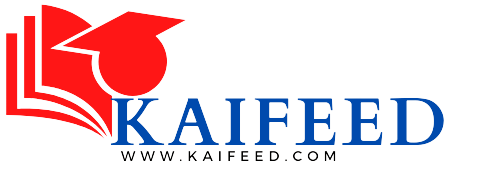Question 1
What is the main role of the teacher in the classroom?
- a) To be a friend
- b) To be a guide
- c) To control everything
- d) To do all the work
Answer: b) To be a guide
Explanation: The teacher helps students learn by guiding and supporting them, not just giving answers.
Question 2
What is the focus of student-centered learning?
- a) Teacher's lectures
- b) Student's needs and interests
- c) Textbook content
- d) Classroom rules
Answer: b) Student's needs and interests
Explanation: In student-centered learning, the teacher focuses on what the students need and want to learn.
Question 3
What is formative assessment?
- a) Final exam
- b) Ongoing feedback
- c) Group project
- d) Homework
Answer: b) Ongoing feedback
Explanation: Formative assessment gives students feedback during learning to help them improve.
Question 4
What is the main goal of classroom management?
- a) To punish students
- b) To create a positive learning environment
- c) To make students quiet
- d) To follow strict rules
Answer: b) To create a positive learning environment
Explanation: Classroom management helps make the classroom a place where students can learn well.
Question 5
What is a lesson plan?
- a) A teacher's diary
- b) A plan for teaching a lesson
- c) A student's project
- d) A school's calendar
Answer: b) A plan for teaching a lesson
Explanation: A lesson plan helps the teacher organize what to teach and how to teach it.
Question 6
Why is it important to have learning objectives?
- a) To decorate the classroom
- b) To guide the teaching and learning process
- c) To give students homework
- d) To fill the blackboard
Answer: b) To guide the teaching and learning process
Explanation: Learning objectives help teachers and students know what they are aiming to learn.
Question 7
What is cooperative learning?
- a) Students learning alone
- b) Students learning in groups
- c) Teachers doing all the work
- d) Parents teaching their kids
Answer: b) Students learning in groups
Explanation: In cooperative learning, students work together to help each other learn.
Question 8
What is the main idea of constructivism?
- a) Learning is copying from the board
- b) Learning is building knowledge from experiences
- c) Learning is memorizing facts
- d) Learning is repeating answers
Answer: b) Learning is building knowledge from experiences
Explanation: Constructivism says students learn best by doing and thinking about what they do.
Question 9
What is the purpose of summative assessment?
- a) To give feedback during learning
- b) To measure what students have learned at the end
- c) To prepare for the next lesson
- d) To decorate the classroom
Answer: b) To measure what students have learned at the end
Explanation: Summative assessment checks if students have learned the material after teaching.
Question 10
What is scaffolding in education?
- a) Giving students something to climb
- b) Supporting students as they learn new things
- c) Building a classroom
- d) Testing students frequently
Answer: b) Supporting students as they learn new things
Explanation: Scaffolding helps students by giving them support when they are learning something difficult.
Question 11
Why is motivation important in learning?
- a) It makes learning boring
- b) It helps students want to learn
- c) It replaces teaching
- d) It gives students more homework
Answer: b) It helps students want to learn
Explanation: Motivation encourages students to take an active role in their learning.
Question 12
What does it mean to differentiate instruction?
- a) Teaching all students the same way
- b) Adjusting teaching to meet different students' needs
- c) Ignoring some students
- d) Giving everyone the same homework
Answer: b) Adjusting teaching to meet different students' needs
Explanation: Differentiated instruction means changing the way you teach to help all students learn.
Question 13
What is the benefit of using educational technology?
- a) It distracts students
- b) It helps make learning more engaging and interactive
- c) It replaces teachers
- d) It only helps with homework
Answer: b) It helps make learning more engaging and interactive
Explanation: Technology can make learning more fun and easier to understand.
Question 14
What is the purpose of a rubric?
- a) To give teachers a break
- b) To provide clear criteria for grading
- c) To confuse students
- d) To add more homework
Answer: b) To provide clear criteria for grading
Explanation: A rubric shows students how their work will be graded and what is expected.
Question 15
What does lifelong learning mean?
- a) Learning stops after school
- b) Learning continues throughout life
- c) Only teachers keep learning
- d) Learning is only for young people
Answer: b) Learning continues throughout life
Explanation: Lifelong learning means we keep learning new things even after we finish school.
Question 16
What is the importance of inclusive education?
- a) To focus only on top students
- b) To support all students, including those with different needs
- c) To make learning easier for teachers
- d) To exclude students with special needs
Answer: b) To support all students, including those with different needs
Explanation: Inclusive education ensures every student, no matter their abilities, gets a chance to learn.
Question 17
What does peer teaching involve?
- a) Teachers teaching their peers
- b) Students teaching each other
- c) Parents teaching their kids
- d) Computers teaching students
Answer: b) Students teaching each other
Explanation: Peer teaching lets students learn by teaching their classmates.
Question 18
What is reflective teaching?
- a) Teaching by copying others
- b) Thinking about your teaching to improve it
- c) Ignoring feedback
- d) Teaching without preparation
Answer: b) Thinking about your teaching to improve it
Explanation: Reflective teaching means thinking about what works and what doesn't to get better.
Question 19
What is experiential learning?
- a) Learning by listening
- b) Learning by doing and experiencing
- c) Learning by memorizing
- d) Learning by reading only
Answer: b) Learning by doing and experiencing
Explanation: Experiential learning helps students understand better by involving them in real-life experiences.
Question 20
What is the role of a mentor teacher?
- a) To take over the class
- b) To guide and support new teachers
- c) To do administrative work
- d) To write lesson plans for everyone
Answer: b) To guide and support new teachers
Explanation: A mentor teacher helps new teachers improve by sharing experience and advice.






